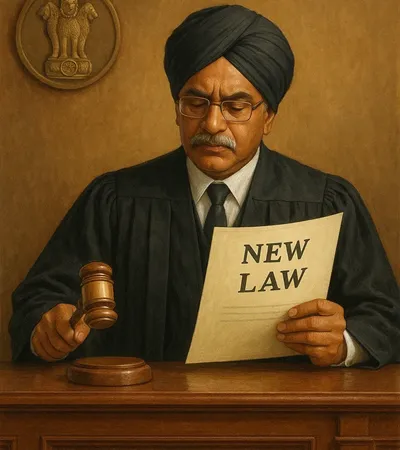
In 2024, Uttarakhand became the first state in India to bring a Uniform Civil Code (UCC) under the leadership of Chief Minister Pushkar Singh Dhami. This new law gives one common rule for everyone—Hindus, Muslims, Christians, Sikhs—for marriage, divorce, inheritance, live-in relationships, and adoption. Earlier, different religions had different personal laws. Now, under UCC, polygamy is banned, meaning no one can have more than one wife.
Practices like halala and instant triple talaq are also not allowed. Live-in couples must register their relationship within 1 month. Forced religious conversions for marriage are banned, and daughters now get equal rights in property, just like sons. The law started from May 2024 and is seen as a big step toward equality, though some groups, especially from the Muslim community, have raised concerns.
Key Highlights
- Applies to Everyone Equally: Hindus, Muslims, Christians, Sikhs – all citizens of Uttarakhand must follow the same civil rules. Exception: Scheduled Tribes (STs) are not covered under this law.
- Polygamy Banned: Change for Muslims: Earlier allowed under Muslim personal law, now only one legal spouse is allowed for all.
- Halala & Instant Triple Talaq Not Recognized: Change for Muslims: These religious practices are now invalid under state law. All divorces must go through a legal court process.
- Equal Property Rights for Sons & Daughters: Change for Hindus, Muslims & Others: Men and women have equal rights in all family property.
- Mandatory Registration of All Marriages: Religious marriage rituals are allowed, but legal registration is a must to make it valid.
- Live-in Relationships Must Be Registered: All live-in couples (including interfaith) must register within 1 month. If not, the relationship may be considered illegal, and both partners can face legal action.
- Religious Conversion Just for Marriage is Banned: Forced or fake conversions are punishable.
- Protection for Women: Law strengthens women’s rights in marriage, divorce, and property. No one can deny legal rights based on religion or custom.
FAQs on Uttarakhand Uniform Civil Code (UCC)
-
Q: What is the UCC in Uttarakhand?
-
A: It is one common civil law for all citizens of Uttarakhand, replacing religion-based personal laws(especially Muslims).
-
Q: Is UCC applicable to all religions?
-
A: Yes, except for Scheduled Tribes of Uttarakhand (holding a Domicile of Uttarakhand).
-
Q: What does it cover?
-
A: a. Marriage
b. Divorce
c. Inheritance
d. Live-in
e. Adoption. -
Q: Is triple talaq or halala allowed for Muslims?
-
A: No, both are prohibited.
-
Q: Are live-in relationships regulated?
-
A: Yes, they must be registered within 1 month.
-
Q: What if someone doesn’t register their live-in relationship?
-
A: It can lead to legal action and penalties.
-
Q: Can a man have more than one wife?
-
A: No, polygamy is banned under UCC for all religions.
-
Q: Does a daughter have equal property rights?
-
A: Yes, equal rights for sons and daughters.
-
Q: Can adopted children inherit equally?
-
A: Yes, adopted children have equal rights.
-
Q: Can women inherit agricultural land now?
-
A: Yes, UCC provides equal rights to women in all types of property.
-
Q: Will marriages under religious customs still be valid?
-
A: Yes, but registration is mandatory for legal validity.
-
Q: Is UCC only for Uttarakhand?
-
A: Yes, currently only Uttarakhand has passed it.
-
Q: What happens if someone violates the UCC rules?
-
A: They can face fines, imprisonment, or both.
-
Q: Is there a punishment for forced religious conversion for marriage?
-
A: Yes, it is punishable under the UCC.
-
Q: Do interfaith couples have to register under UCC?
-
A: Yes, all marriages, including interfaith, must be registered.
-
Q: Can a live-in partner claim maintenance or rights?
-
A: Yes, if the live-in is registered, partners (especially women) can claim maintenance and legal rights.
-
Q: Are customary tribal practices affected?
-
A: No, Scheduled Tribes are excluded from UCC’s scope.
-
Q: Does UCC ban child marriage?
-
A: Yes, it enforces the legal age of marriage (21 for men, 18 for women) strictly.
-
Q: Can religious ceremonies still be performed?
-
A: Yes, but registration after the ceremony is compulsory for legal recognition.
-
Q: Was the UCC in Uttarakhand brought by the BJP government?
-
A: Yes, the BJP-led state government introduced and passed the UCC in 2024.
-
Q: Is UCC a part of BJP's ideology?
-
A: Yes, UCC has been a long-standing promise in BJP's election manifestos and part of its national agenda.
-
Q: Can the UCC be removed if another party comes to power?
-
A: Not easily. A new government would need to pass another law in the Assembly to repeal or change it.
-
Q: Will the UCC automatically end if BJP loses in Uttarakhand?
-
A: No. UCC is a state law now. It remains in force unless formally repealed through the legislative process.
-
Q: Can the court stop the UCC if a new party challenges it?
-
A: Only if the law violates the Constitution. Otherwise, it’s valid and binding law.
Add new comment